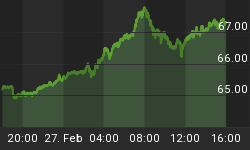The U.S. Department of Justice has reportedly agreed, in principal, to allow the $66-billion merger of Bayer and Monsanto to go through, with expectations that official approval could come this week amid widespread opposition from farmers and other stakeholders.
Anti-trust issues in multiple jurisdictions have tripped this mega merger up for two years, and on Monday, the Wall Street Journal reported that the DoJ had agreed to a plan in which the companies would sell off additional assets to ease concerns that the deal would harm competition.
On Tuesday, Bloomberg cited unnamed sources as saying that final approval for the deal could come as soon as this week.
Clearing the U.S. antitrust hurdle is only one potential victory for the Bayer-Monsanto merger. While it won anti-trust approval last month in the European Union, China, Brazil and Australia, the U.S., Russia and India still have to give the official green light.
In an attempt to ease concerns about competition, Bayer had earlier agreed to sell off $7 billion in additional assets to Germany-based BASF, but some jurisdictions—the U.S. among them—wanted more divestitures.
Once merged, the new mega company could control over 35 percent of the global market for corn seeds, an estimated 28 percent of the global soybean market, and nearly 70 percent of the global cottonseed market.
The overriding sentiment is that the agrichemical industry already has too much control over the U.S. food system, and this merger will solidify their power.
Related: The Ten Greatest Investments In History
Those opposed to the merger also argue that the deal would create a behemoth in the form of the world’s largest vegetable seed producer with a near monopoly on the broccoli, carrot and onion seed markets.
According to a late-2016 study by the Agricultural and Food Policy Center at Texas A&M University, this merger and two that came before it would likely cause price spikes of up to 2.3 percent for corn and 20 percent for cotton.
Until recently, the sector was dominated by the “Big Six”, in terms of both seeds and crop chemicals:
• Germany’s BASF
• Germany’s Bayer
• US-based Dow Chemical
• US-based DuPont
• US-based Monsanto
• Swiss Syngenta
In August last year, DowDuPont was formed following the $130 billion merger of US companies Dow Chemical and DuPont.
In February 2016, just a few months before Bayer proposed the Monsanto acquisition, the Chinese state-owned company ChemChina offered $43 billion for Syngenta and the deal was approved in May last year. Related: Bigger Market Corrections May Be On The Horizon
If the Bayer-Monsanto merger goes through, we’ll be looking at the “Big Four” controlling the world market.
Even prior to this, the “Big Six” agro companies-controlled 75 percent of the global agrochemical market, 63 percent of the commercial seed market and more than 75 percent of all private sector research on seeds and pesticides.
Monsanto and Bayer are the two largest sellers of cottonseed and the merger would make that industry even more concentrated. For the chemical market, the formation of DowDuPont will likely see much greater concentration in that segment.
Farmers fear the deal, and a recent survey of U.S. farmers found that 93 percent are against the merger.
American farmers fear increasing prices of seeds, fewer options, and decreased bargaining power.
Roger Johnson, President of the US National Farmers Union said that farmers deserve fair prices, choices in what they plant, and the type of market competition that incentivizes firms to compete and innovate for their business.
“A Bayer-Monsanto merger stands to move each of these factors in the wrong direction, and that is away from competitive markets… Four or five firms dictate the prices that farmers pay for their inputs,” Johnson said.
By Charles Benavidez for Safehaven.com
More Top Reads From Safehaven.com:
















